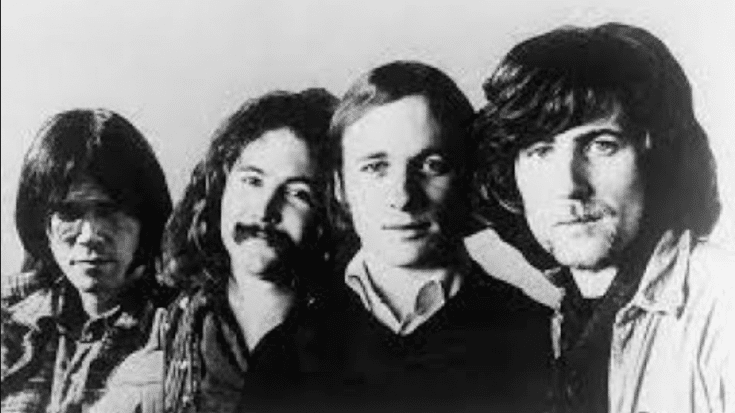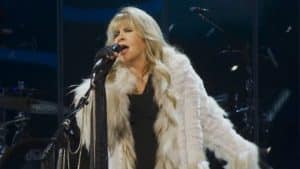The Top 10 Protest Songs in ’70s Classic Rock

via Pete Roberts / YouTube
The ’70s, a pivotal era marked by vibrant social movements, carried the torch of protest music ignited in the ’60s, especially in response to the Vietnam War and ongoing civil rights struggles. As the cultural landscape evolved, so did the sounds of dissent. In the U.S., soul music took center stage, while the U.K. saw the emergence of punk rock, providing a rebellious voice for disenfranchised youth. Let’s dive into the top 10 protest songs of ’70s classic rock, each carrying a unique resonance in the tapestry of social change.
The ’70s, a pivotal era marked by vibrant social movements, carried the torch of protest music ignited in the ’60s, especially in response to the Vietnam War and ongoing civil rights struggles. As the cultural landscape evolved, so did the sounds of dissent. In the U.S., soul music took center stage, while the U.K. saw the emergence of punk rock, providing a rebellious voice for disenfranchised youth. Let’s dive into the top 10 protest songs of ’70s classic rock, each carrying a unique resonance in the tapestry of social change.
10. “(Don’t Worry) If There’s a Hell Below, We’re All Going to Go”—Curtis Mayfield (1970)
Curtis Mayfield’s “If There’s a Hell Below” from his 1970 debut solo album, “Curtis,” takes a funky stance on warning about American race relations. With an ominous apocalyptic feel, Mayfield urges society to get its act together before hell breaks loose.
9. “Fight The Power (Part 1 & 2)”—The Isley Brothers (1975)
The Isley Brothers’ 1975 anthem, “Fight The Power,” is a funky anti-establishment song that showcases a distrust in authority. Its undeniable intensity made it a force later embraced by Public Enemy in their 1989 protest rap song of the same name.
8. “God Save the Queen”—The Sex Pistols (1977)
Released amidst immense controversy in 1977, “God Save the Queen” by The Sex Pistols boldly indicts the monarchy as a “fascist regime.” With a nihilistic perspective, the song represents punk rock’s impact on protest movements, influencing generations to come.
7. “Ku Klux Klan”—Steel Pulse (1978)
Roots reggae band Steel Pulse from Birmingham, England, delivered “Ku Klux Klan” in 1978, reflecting a clear anti-racism stance. The song’s powerful message is accentuated by an irresistible driving bassline.
6. “Ohio”—Crosby, Stills, Nash & Young (1970)
Neil Young’s poignant “Ohio” was born in response to the Kent State massacre in 1970. Blaming President Nixon for the tragedy, the song became an enduring anthem for the protest movement and a powerful indictment of authority.
5. “Another Brick In The Wall (Part 2)”—Pink Floyd (1979)
Pink Floyd’s 1979 hit from “The Wall,” “Another Brick In The Wall (Part 2),” explores the oppression of individuality in school. With the iconic chant “Hey! Teacher! Leave them kids alone!” the song addresses societal conformity.
4. “(White Man) In Hammersmith Palais”—The Clash (1978)
The Clash’s 1978 single, “(White Man) In Hammersmith Palais,” stands as a socially conscious protest song addressing anti-violence, race relations, and wealth distribution. Its incorporation of reggae and ska elements signaled the band’s departure from traditional punk sounds.
3. “The Revolution Will Not Be Televised”—Gil Scott-Heron (1971)
Considered a proto-rap classic, Gil Scott-Heron’s “The Revolution Will Not Be Televised” from 1971 critiques political passiveness and challenges the ability of pop culture to address real concerns. It remains a poignant document of early ’70s protest.
2. “Alternative Ulster”—Stiff Little Fingers (1979)
Hailing from Belfast, Stiff Little Fingers’ “Alternative Ulster” pleads for a better future amidst the troubles in Northern Ireland. In the DIY spirit of punk, the band encourages seizing the opportunity for change.
1. “Working Class Hero”—John Lennon (1970)
John Lennon’s “Working Class Hero” from his 1970 album “John Lennon/Plastic Ono Band” offers subtle social commentary on class divisions and societal manipulation. While not his most famous protest song, its introspective tone makes it an enduring part of the protest movement’s legacy.





























